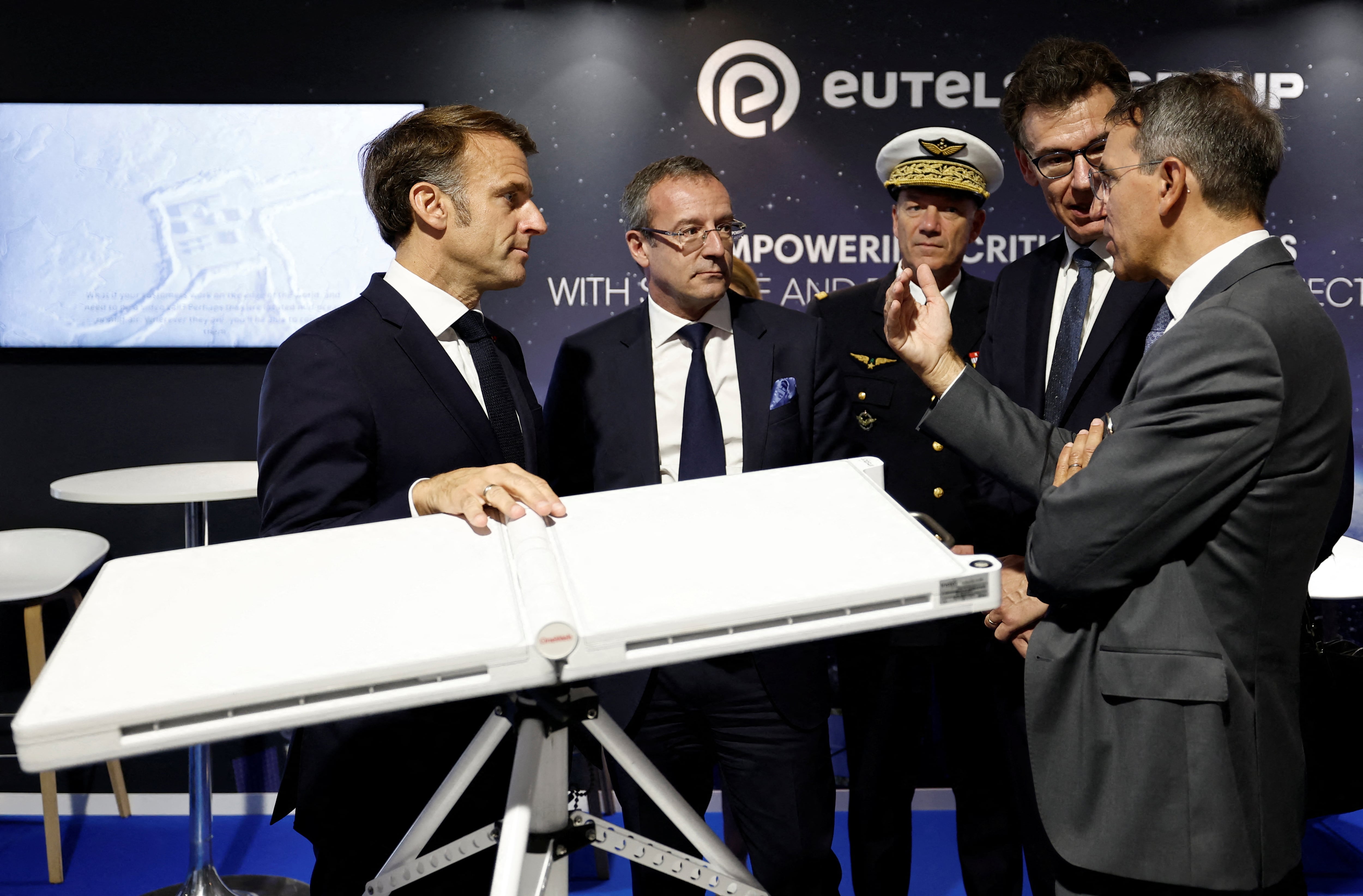WASHINGTON — Venture capital-backed startup Epirus unveiled a high-power microwave system capable of deploying on a drone, the California-based company announced Feb. 14.
The Leonidas Pod makes the company’s ground-based system, designed to protect forward operating bases from incoming threats, mountable on a variety of other systems, according to a company statement.
The system is designed to address drone swarms rather than singular drone threats. These swarms are a growing problem for the U.S. military as it develops counter-unmanned aircraft systems capability.
“The newly introduced Leonidas Pod enables a range of mission capabilities and, with multiple mount options to maximize portability, can advance directly to the threat environment,” the statement said. “With Leonidas deployed alongside a drone-mounted Leonidas Pod, the systems work in unison to achieve greater power and range and create a layered defense forcefield.”
Leonidas is intended to be a cost-effective solution to countering electronic threats when compared to using expensive kinetic means to take out cheap drone threats. Leonidas can fire rapidly on targets with “near-instant effects” without overheating, the company said, and the system eliminates the need to reload.
The system is able to power up and down in minutes and has extended battery life, allowing the Leonidas Pod to move to the threat in any domain and then return to base. The pod has a standby mode and the system can be activated without draining battery power.
The company unveiled its ground-based version of the system in 2020. Through three field demonstrations in 2021, the system demonstrated it can counter both rotary and fixed-wing drones, and at its most recent demonstration, the system disabled an outboard ship motor, proving possible maritime applications.
Epirus recently won a multimillion-dollar contract from the Defense Advanced Research Projects Agency to develop software to more accurately predict the behaviors of electromagnetic waveforms. Last month, Epirus was one of four companies selected to the Army Applications Laboratory Soldier Power Cohort to develop intelligent power management solutions.
The company has also partnered with larger defense contractors. Epirus announced in October 2021 it was teaming with General Dynamics Land Systems to integrate Leonidas on vehicles like the Stryker combat vehicle and other manned and unmanned ground vehicles to provide Short-Range Air Defense (SHORAD) capabilities.
The Army recently fielded its first platoon of Stryker-based SHORAD systems to Europe. The service is also building four SHORAD 50-kilowatt-class directed energy-capable Strykers.
Epirus launched in 2018, jumping into the $2 billion-and-growing counter-drone market.
Leigh Madden, who heads the company, was general manager for Microsoft’s national security business before joining Epirus. Its chief financial officer, Ken Bedingfield, previously was the CFO at Northrop Grumman. Former defense secretary Mark Esper is on the company’s board of directors.
The counter-drone market is so dense that the Pentagon founded a Joint Counter-Unmanned Aircraft Systems Office, tasked with identifying enduring systems and rapidly integrating new technology to address the problem.
Jen Judson is an award-winning journalist covering land warfare for Defense News. She has also worked for Politico and Inside Defense. She holds a Master of Science degree in journalism from Boston University and a Bachelor of Arts degree from Kenyon College.








